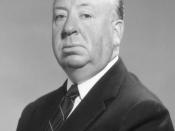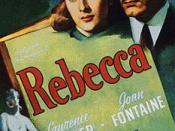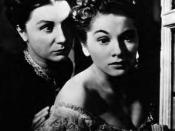The movie 'Rebecca' is an excellent example of Alfred Hitchcock's style and eye for detail that combines with a story filled with psychological fear and settings that are suggestive and interesting. The film creates an atmosphere surrounding the tragic courtship, marriage, and relationship of a naive, plain, and innocent young woman to an overburdened widower, Maxim de Winter, who is haunted by the death of his former wife. Maxim's former wife, Rebecca, had it all; beauty, power, and was admired by all. This creates problems for his new wife when she becomes psychologically dominated by the 'presence' and memories of Rebecca. The mysterious housekeeper, Mrs. Danvers, doesn't make things any easier. Her recollections of the deceased Rebecca lead the young wife to become even more tormented. The flaming destruction of the Manderly Estate at the end of the film reveals the true character of Rebecca and the secrets of her death.
During this classic Hitchcock cinema, many filming and camera techniques are used. The film begins with the opening shot of the dream-state journey to Manderly and a recollection of memories narrated by the unnamed heroine in the film. During the narration, the camera pauses for a few seconds at the iron gates of the Manderly Estate and then proceeds through them up the drive that has become overgrown with underbrush. At the end of the drive, the
camera tracks to the right where the mansions burned out ruins are seen Silhouetted in a dense mist and viewed in shadows and moonlight. After the introduction the narrator begins to tell the story of "the strange days" of the young woman's life. On a rocky coast where waves are crashing against the cliffs, the camera pans left and then up to a man wearing a dark black...


